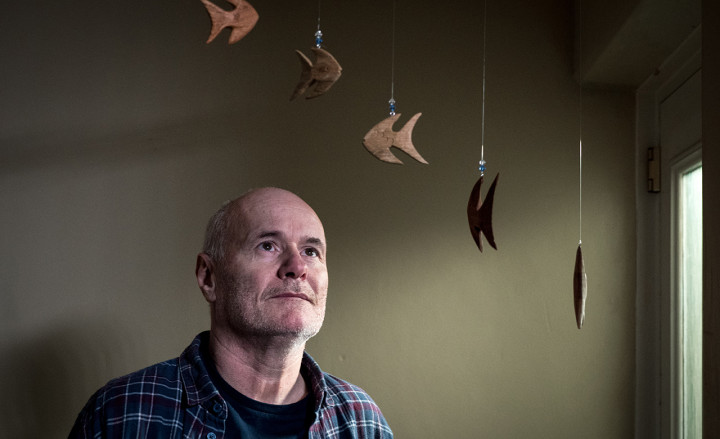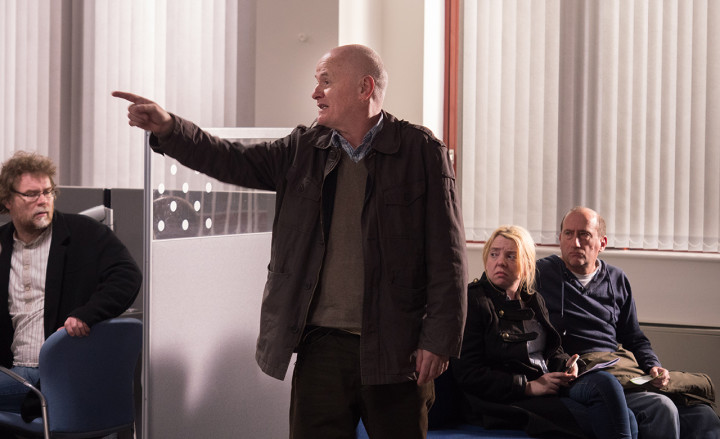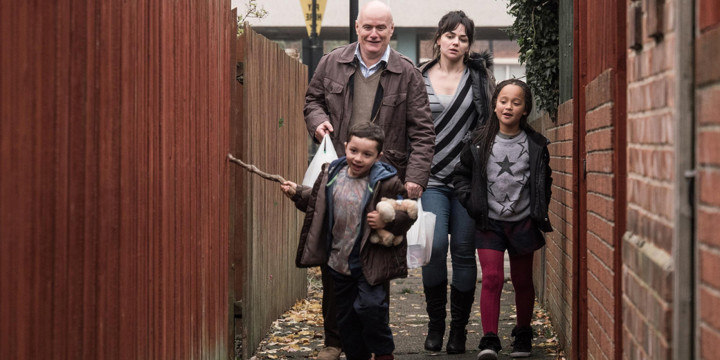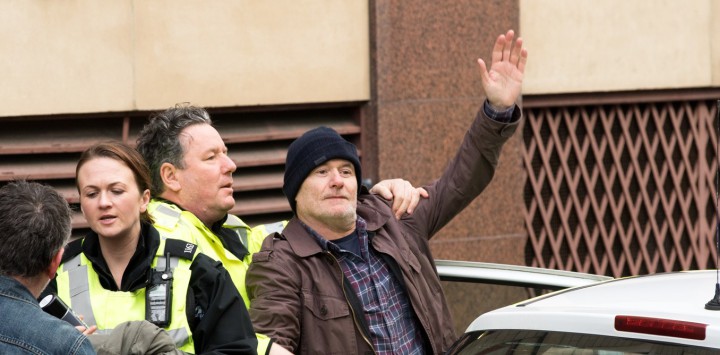Unlike the eponymous character driving 2016 Cannes Palme d’Or winner I, Daniel Blake, Ken Loach’s curriculum vitae is in no need of a polish. The director has a well-established track record of biting social commentary, and his latest glimpse into the Kafka-esque hellscape of dehumanizing governmental bureaucracy follows suit admirably. What’s surprising about Daniel Blake is not the black comedy that pervades writer Paul Laverty’s script, but the amount of pathos he and Loach are able to concoct without lapsing into saccharinity or preachiness. It’s a touching, heartfelt work that’s hard not to like, even if it can be difficult to enjoy.
That difficulty lies in the film’s premise and its inherently frustrating progression. The story revolves around an aging carpenter who’s recently suffered a massive heart attack and therefore been prohibited from working by his doctors, while attempts at drawing government benefits during his convalescence are consistently thwarted by a byzantine British bureaucracy that makes the cable company’s five-hour service windows look like a model of efficiency. We learn all of this in the opening minutes of the film, as an agonizing phone call with a caseworker plays out in real time — and while that sounds tedious, it’s far more entertaining than it has any right to be. But as the film goes on, I found my sense of exasperation mirroring that of the protagonist a little too closely. Drawn-out pacing and the stubborn withholding of even minor catharses were clearly intentional choices on the part of Loach and Laverty, but while these choices are tonally appropriate, they’re also exhausting.
As discomfiting as I found watching my blood pressure rise in accordance with that of Daniel Blake’s, the fact that it did says a great deal about the efficacy of the film. Loach and Laverty are in top form, their political sentiments equally applicable to contemporary America as to northern England. But none of this could work nearly as well without the talents of comedian Dave Johns as the titular Blake and Hayley Squires as the single mother he befriends. Johns brings just the right amount of sardonic crotchetiness to his portrayal, while Squires is absolutely gut-wrenching. The duo’s relationship is the heart of the film’s argument that even the downtrodden deserve dignity, and without two such dynamic performances, Blake’s bitter pill would be far too hard to swallow. It very nearly is anyway.
Daniel Blake presents a nightmare that is dystopian in the truest sense of the term, rendered all the more devastating because it feels so believably real. This is not the surrealistic future of Terry Gilliam’s Brazil, or the mythic seriocomedy of A Man Called Ove — this is the world we live in, as it stands today. These are characters just as rounded and dimensional as you or me, living in a world that punishes integrity and has long since disavowed any acknowledgment of a moral high ground. Whether or not this perspective resonates with your individual take on reality probably has a lot to with your politics, but it probably shouldn’t. Late in the film, Johns’ Blake says pointedly of his struggles to achieve even a modicum of human decency from his overlords: “It’s a monumental farce, isn’t it?” I left Daniel Blake with the sneaking suspicion that he’s right — and that I need to watch this film again, daunting though that prospect may be. Rated R for language. Opens Friday at Grail Moviehouse.








Best of the new movies this weekend. It did remind me of A MAN CALLED OVE somewhat.